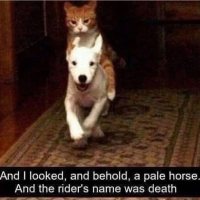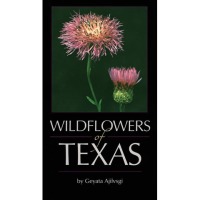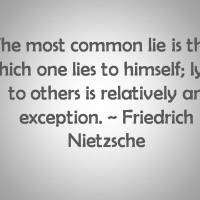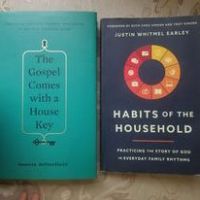Running in Heels
 Title: Running in Heels
Title: Running in Heels
Author: Mary A. Perez
This book was hard for me to read, mainly because – post motherhood – I have discovered that reading about terrible childhoods pulls at all the wrong heartstrings. Getting through the beginning and wanting to scoop little Mary away from all the mess, while simultaneously wanting to save her mother from herself, was stressful. The things I loved about The Glass Castle are the same things that, after having a daughter, held me back from finishing The Liar’s Club. Things I have the stomach to deal with in real life, because it needs done, is not something I have the stomach for in past tense memoirs, because what is done is over with now.
Mary’s memoir remains hopeful and hope filled. After all the trials and tears, she comes out the other side, not just ok, but happy. For this reason, I plan to donate my copy (that was given to me by the author in exchange for an honest review) to the women’s ministry down the street. There are so many people who could be blessed by her story.
She’s a quick paced writer, a little repetitive at times, but that is the way it is with memory: certain things stick out and you rehash them trying to make a bit of sense from them. A mother who doesn’t like to cook is one thing, one who won’t cook is quite another. As an adult, a mother, a grandmother, I imagine much of this repetition is bafflement and she articulates the differences at different ages through her life. A child will say “mama doesn’t like cooking” whereas a woman would look back and think, “Why didn’t my mother cook for me?”
Through much of the book, Perez tells you the facts, and leaves you to infer your own conclusions as a nurtured adult. Through obviously more emotional periods she tells you what she was feeling and leaves you to infer the facts. It’s a riveting tactic.
Peace Like a River
Author: Leif Enger
Genre: Fiction/ Literature
One of the few tragedies of working in a bookstore is seeing the popularity aftermath of a book. When there are fifty copies of something for $1 we clerks get in the mindset (if we haven’t read the book yet) that the title was a fad. Not just a fad, but it was clearly a book not worth keeping or re-reading.
Note to shoppers: just because a lot of people don’t keep their books and just because a book isn’t something people jump to re-read, does not mean it’s not worth reading in the first place.
For this very reason, it has taken me years to getting around to reading Peace Like a River. Not just that, but I was tentative and checked the book out – I didn’t even purchase it!
Next time I see a beautiful hardback, I will.
Peace Like a River is all soul filled and gorgeous with running themes concerning miracles, family, God, and consequence. It’s not what I would call a happy book, but it’s not a sad one either. I think it is one of the few in this world written truthfully about human experience, religious families, and the nature of people who function within the knowledge of an ever present God. People without the faith of Jeremiah Lands just don’t live lives like Jeremiah Lands. Some might think that would be a blessing – to go through life without such scruples. I mean, look where it got him. The fictional character finds himself in the precarious position of being a good and godly father to a fugitive, his other son – though revived from death at birth by a miracle – is a severe asthmatic. His daughter is an insanely intelligent poet, but becomes a target in their war with existence.
How exhausting.
But Jeremiah Lands, even in pneumonia and illness, never seems exhausted. The guy is a far cry from energetic, but he is steady. He is solid. He is the kind of father I think many hope for, despite his oldest son’s resistance to him. That sort of resistance is natural, I think, when it comes to family and God. It happens. And it happens very much just like that. Davy is a good person with scruples of his own, he was raised right and chooses I think what many of us would choose in certain situations. But the consequences of his choices make faith hard, and the lack of faith makes each choice harder than the next.
I needed this book this year. And if you see a copy in a bookstore for a dollar, snatch it up quick.
Haunting Jasmine
I have a cousin I’ve never met. She married my actual cousin that I grew up playing with on a good chunk of our weekends when we were kids – and special holidays – so she’s not really MY cousin, but I have a habit of adopting people that way. My family is weird, he’s the great grandson of my Grandfather’s sister, but I spent more time with their family than a lot of people spend with first cousins. Unfortunately, he flitted away out of state and I haven’t had a chance to spend time with his lovely bride.
She’s been a published author for quite awhile now, longer than I’ve been running this blog, but I had conveniently lodged that information into some lost corner of my brain – until recently, as he and I played Scrabble over Facebook.
Anjali Banerjee is the lovely woman my awesome cousin chose to spend the rest of his life with and I’m so pleased to finally read one of her books. While reading Haunting Jasmine, I felt like perhaps we were kindred spirits, as we have both written about bookstores, and clearly have a mutual passion for the written word.
She’s just way better at using those words than I am!
Author: Anjali Banerjee
Genre: Women’s Fiction
If you’re in the mood for a haunted bookshop, a fabulous Indian aunt, a god hanging out with Dr. Seuss, Jane Austen, Beatrix Potter, and a number of other ghosts – then you might need to find yourself a copy of Haunting Jasmine. Set in the north west, there’s a nice bit of ocean, some chilly weather, rain, hot tea, and a divorcee you might want to spend a day with in Seattle.
The writing is easy to get into, and she made lucky choice to use the word wafted – we all know how much I love that word, I think.
There’s a bit of a romance, but nothing too over the top to actually place it in the romance genre – it’s more about Jasmine and her journey to understanding herself and the nature of her aunt’s shop.
It’s definitely worth a bubble bath or day off, and I’m not just saying that because I’m biased. 🙂
A Chick Lit Weekend
Sometimes a girl just feels the need to read some check-lit. I read two novels this week that I think fit the bill – one more Anne Tyler – esque and the other a little more Emma McLaughlin and Nicola Kraus.
Title: A Scattered Life
 Author: Karen McQuestion
Author: Karen McQuestion
Genre: Women’s Fiction
A Scattered Life embraces the art of telling a story from three different women’s viewpoints. When done well, this is a nice way to allow things to unfold like an onion but still maintain a linear storyline. McQuestion does it well. Time your reading to finish the book right before bed so you can sleep after, because you’ll feel like you’ve lived three lives all at once when you turn the last page; it won’t exhaust you, it’s just nice to immediately fall into a slumber after living so much. McQuestion writes for young adults as well, and I’m looking forward to see what she has to offer when she crosses genres.
Title: Vanity Fare
Genre: ChickLit
Book references, pastries, coffee… umm, yeah that’s right up my alley. Except there’s definitely a romance novel chronology to the book that distracted me from my book envy, pastry drooling, and coffee binging. (Ironic, I know, as I am the author of The Bookshop Hotel and the characters totally tried to get romancey on me while I put them to paper.) All in all, good stuff. It’s something I will definitely recommend to lit-snobs who need a break from heavy reading and chronic romance readers who are looking for something less pornographic that will gently encourage them to dip into the classics.
The Clover House
 Title: The Clover House
Title: The Clover House
Author: Henriette Lazaridis Power
Publisher: Ballantine Books
Length: 397 pages
It took me much longer than it should have to read this book. It has the vibe of a Kate Morton novel, but didn’t quite enrapture me in the same way – mostly because I am preoccupied. It’s possibly ironic because this preoccupation was along the same vein of that of the main character – but I was left unmoved.
It’s the slipperiness of memory that caught my attention though. How some people remember things so drastically different than other people who were right there in the same room. How perceptions are changed by knowledge. How ignorance is not always bliss, but can be if you let it.
I think more than anything, the book was good, but perhaps I wasn’t ready for it. And if I was, perhaps I’m just not ready to discuss it. Don’t be surprised if I bring it up six months from now, once I’ve digested it all.
And When I Think, I Fall Asleep
 Title: One Hundred Years of Solitude
Title: One Hundred Years of Solitude
Author: Gabriel Garcia Marquez
Genre: Fiction/ Literature
Length: 458 pages
When I was a kid I had a poster of a chimpanzee on my wall. Underneath in a font that was surely intended to motivate a young mind it said: “When I Work, I Work Hard. When I Play, I Play Hard. But When I Think, I Fall Asleep.” The monkey had his chin resting in his human-like hand, eyes drooped down.
Although I’ve read more books that my norm this year, I’ve just *mostly* finished my 93rd title, it’s been a lot of fluff. It’s been a lot of things that digest easily and go down like lemonade on a hot summer day, or cooled hot cocoa in winter. The heavier stuff that I tend to enjoy has bored me. I’m too tired for all this thinking. My energies are spent writing. I want to just download books into my head, Matrix style, when I sit down to read.
One Hundred Years of Solitude has been sitting on my shelf radiating all this promise for years. I’ve put it off because it was going to blow my mind. It was going to be too wonderful for words. Then, when the words came, it was supposed to be the most intelligent thing that had ever come from my mouth – or been typed by my fingers. Because it’s Gabriel Garcia Marquez. Because Garcia is wonderful. Because this is his magnum opus.
I was bored.
There’s a lot to take in. There’s a lot to quote. I could never write anything so wonderful in all my life.
But around page 300 out of the 458 pages, I caught myself skimming. The drama was annoying me. The people were unfriendly. I couldn’t relate to anyone, nor did I want to. This probably says more about my mood than anything else, but I started flicking through the pages speed reading to a level that even I know I’m not really reading anymore.
“Not finishing a book that doesn’t move you is a sign of reading maturity,” I just told a co-worker at the bookstore tonight. “It’s knowing that there are so many wonderful things out there that you shouldn’t waste your time with things that aren’t wonderful.” I waste my time with things that aren’t wonderful all the time. Even more so, I waste my time with things that are wonderful even if I’m not feeling wonder at them at all, I’m just reading it because I’m supposed to feel awed.
Around page 370 or so, I took a deep breath, skipped to the last chapter and read it. Yes, I skipped pages. Lots of them. And just read the end. I still started nodding off. I’m not even that tired (ok, I am that tired, but good books are supposed to keep you awake!), just that unmoved by this family and their crap. Sadly, I didn’t feel like I missed anything at all. I was just relieved that it was over, that I was going to mark this one off my list. Then, I felt the annoyance of the knowledge that I was not going to write my one solid literary essay of the year, at least not on this book. (Once a year or so, I write an essay. A proper one, as though I’m still in school. It’s lame. And nerdy. But I feel like I have to do this to stay in practice. You know, in case I ever go back. They get worse every year. I’ve stopped sharing them. Now, it looks like I’ve even stopped writing them.)
I’m further annoyed that this is a favorite book of my best friend. I hate that I can’t share that with her.
Maybe I’ll read those pages I skipped one day. Maybe. For now, I’ll admit defeat and enjoy my sleep.
There’s Something About Bungalows
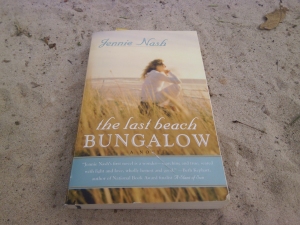 Title:The Last Beach Bungalow
Title:The Last Beach Bungalow
Author: Jennie Nash
Genre: Fiction
Length: 271 pages
I love beaches, and despite my father’s distaste for them, bungalows as well. So naturally, the cover of the book moved me the instant I saw it. But it took me awhile to sit down to read it. I was saving it. I was saving it for when I needed to lose myself in a fictional bungalow romance. The romance, of course, being with the house, not between people.
This is a beautiful story that Nash has written. All that is within is conveyed on the front cover except for the holiday aspect – the story revolves around Christmas time. But maybe that’s what Christmas looks like in California. I don’t know. I’ve never been there.
The story is about April Newton, a cancer survivor, who is building her dream home with her husband. Except she has an impression of her McMansion that stems from the state of her lackluster life, and instead she seeks wisdom and warmth from a beach bungalow.
The owner of this 1928 original bungalow is seeking a buyer with heart. What would you give – besides money – to live here? Bring your offers, your stories, and a promise to preserve and protect. Winner will pay $300,000.
The story is lovely. Lines like, “I wanted to hear the sadness out loud that I felt so silently in my bones,” trickle through and keep you turning the page. It’s about coldness and warmth, on a level beyond the skin, and I enjoyed it thoroughly. But my favorite part was at the end, in the reader’s guide, when the publisher thought to ask teary eyed book clubbers: “Have you ever fallen in love at first sight with anything or anyone – a person, a dress, a dog, or a house?”
Yes. Several times over, yes. With a dog (a beagle, Geoffrey Chaucer), with a bike (a 1960’s Sears Cruiser), with two of my previous homes, and finally – the most appropriate answer – a bungalow.
Recently, we’ve been home hunting. We’ve been redefining our dreams, our lives, our priorities. Is it stuff? Is it land? Is it the right neighborhood or is it being debt free? I’ve dreamed of beaches in Georgia, of hole in the wall houses in Galveston, of land in the country, of many places… but briefly, I was madly in love with a bungalow being sold by a widow – just like in the story, but there was no contest.
It had teal trim, just down the road from a university I once planned on attending. It was for auction as is for $55k. There were fig and citrus trees in the back, just behind a box garden that was just beyond a patio I could have lounged on for hours. There was a lean-to that had been enclosed to make a faux laundry room and I nearly cried with glee when I walked into it, because I’d been having discussions all year with my editor as to whether the general public these days would know what a lean-to was. The walls in the lean-to weren’t finished and I dreamed of finishing them myself and painting them sunshine yellow. I could see myself folding laundry with my dogs at my feet, my husband’s tools in the corner.
Just inside the back door was kitchen with custom made cabinets, floor to low ceiling. They had been made by the man who had lived there. Like Nash’s story, the daughter was the one showing the house. She had tales about her father and uncle making those cabinets. I envisioned a vintage style refrigerator where the appliance should go.
Hardwood floors, a cast iron stairway her father had welded himself. The living room was my least favorite, but it would do, I didn’t plan on spending much time there. The downstairs bedrooms were cozy and the attic was built out with two more – one large and strangely shaped with nooks and cranies to tuck oddly built shelves. I wanted to hide my library there and create a writer’s nook – or make it my daughter’s bedroom. I wasn’t sure, but it seemed like a nerdy-princess’s dream tower. Also upstairs was a much newer restroom than was down below and a tiny bedroom fit for a doll – or a cool playroom nook.
My best friend drove me there to look. My daughter twirled around the rooms telling me she’d live there (which was a big deal since we were leaving the only house she’d ever known). We walked the property, me saying awkward and possibly inappropriate things in my distraction and awe while my best friend asked the real questions. I kept going in and out. I mentally filled the house with my own things and started visualizing what didn’t fit going into the trash can. Outside there was a garage clearly meant for a carpenter. The yard clearly meant for dogs and a garden. I was dying to show my husband. The neighborhood wasn’t quite right, but the house was a dream. Small and quaint and restful.
Like April Newton, I wanted to rest there. I could see myself there for years to come, if only it would offer me the peace and coziness away from the outside world that I desire most. Like April Newton, it was not meant for me. I can’t find any photos of it online, which must mean it’s off the market. I only hope that whoever finally found it is treating it well.
There’s just something about bungalows.
Grandmother’s Cabin
 Title: Grandmother’s Cabin
Title: Grandmother’s Cabin
Author & Illustrator: Angela Rout (@mamacomic on twitter)
Genre: Children’s Picture Book
We received this book in the mail from the author right before I left on my book signing tour to San Antonio. I was mean, I was so excited about it, I made kiddo wait until I got back from my trip. Daddy was under strict orders that this book was not to be read while I was away.
I thought about it while I was away a lot. All the colors of the front cover kept coming to mind while I was faced with all the colors of San Antonio.
It was worth the wa it. Grandmother’s Cabin lived up to my own mental hype. Kiddo snuggled up in my lap last night and settled in for the new book to review, ready with opinions.
it. Grandmother’s Cabin lived up to my own mental hype. Kiddo snuggled up in my lap last night and settled in for the new book to review, ready with opinions.
It seems to be a snugly sort of book in general, my favorite kind, as during story time today everyone was reaching for their mothers and trying to get into laps. That’s not typically the case with other stories. Instinctively, children know: this book is for families and heritage, and appreciation of the good things that calm our souls.
The front cover is simply one of many exciting illustrations. The further into the story you get, the richer the images, and more vibrant the colors – or maybe it’s the story that makes me feel like they’re richer and more vibrant…
Rout maintains a splash of color on the right side of the page and ornate pencil sketches on the left side along with the text.
It’s whimsical, magical, and even won a “Moonbeam” award. If that doesn’t sound mysteriously romantic, I don’t know what does.
 Dedicated to all things grandmothery and cozy, the book is about spiritual healing found by looking back to your ancestors, finding comfort in tea, and relaxing with a good book and favorite activity.
Dedicated to all things grandmothery and cozy, the book is about spiritual healing found by looking back to your ancestors, finding comfort in tea, and relaxing with a good book and favorite activity.
“I like to paint too!” My kiddo squealed when Grandmother revealed an easel and paint tray among the tropical forest.
When Grandmother did her super hero pose, Kiddo did hers too. Later when we went over the discussion questions Rout provides on the last page, Kiddo answered that she wants to be like Grandmother. “I can heal like Grandmother – by licking – like Helo.” Helo is the dog. Clearly, my child needs more grandmother interaction and less puppy play.
“When I’m happy I don’t fly high in the sky,” Kiddo lamented. “And I get sad when I’m sick. And I get upset when Dad plays with MY frisbees.” Well, then.
Finally, I read the last question to my daughter:
Grandmother’s love makes Mother feel happy. How can we connect with our ancestors and our loved ones who have lived before us? What can we do to help them be of service to us? As an example some people tell stories, remember them, pray for them, learn about them, or celebrate their accomplishments. What does your family do?
“Walk in the woods. I like to walk in the woods,” my child responded wisely. Yes, my darling, we do. And that’s why this book spoke to us from the front cover alone. Coffee and Tea Cups, Books, Paint Brush, Foliage… what more could a gal need to feel restful and restored?
Grandmother’s Cabin is lovely and enriching. It opens up a topic of discussion many people believe to be beyond what children can handle, but it’s perfect, and the children I’ve read this book to today handled it with grace and curiosity.
I read children’s books at the Half Price Books in Humble every Wednesday throughout the summer, starting at 10:30 am. Many of these titles are plucked from the shelf and are available for purchase right then and there. Some of what I read and share come from a publisher or an author and might not otherwise be readily discovered. Like today, Grandmother’s Cabin was sent to me from an author in Calgary, Alberta. If you have kiddos, live in the area and wish to join us, please do.












